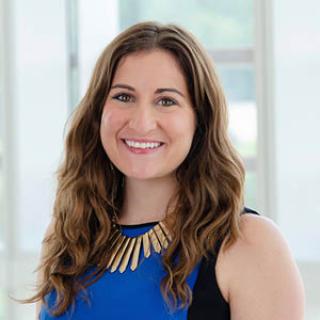As a medical student, do you ever wonder what it’s like to specialize in emergency medicine? Meet Jordan Warchol, MD, an emergency physician and a featured doctor in the AMA’s “Shadow Me” Specialty Series, which offers advice directly from physicians about life in their specialties. Check out her insights to help determine whether a career in emergency medicine might be a good fit for you.
The AMA’s Specialty Guide simplifies medical students’ specialty selection process, highlight major specialties, detail training information, and provide access to related association information. It is produced by FREIDA™, the AMA Residency & Fellowship Database®.
“Shadowing” Dr. Warchol (@ActuallyDrJ)
Specialty: Emergency medicine.
Practice setting: Academic faculty.
Employment type: Jointly employed by a hospital and a university.
Years in practice: Six, including residency.
A typical day and week in my practice: There is no such thing as a typical day in emergency medicine, especially academic emergency medicine. Every day, week, month is unique, which is one of the things I love about my job.
I typically work about three clinical shifts a week, which can be anything from first thing in the morning at 6 a.m. to the 10:30 p.m. to 7:30 a.m. overnight. Between these, I have various meetings, policy lectures for residents and students, travel for speaking engagements or policy discussions, and of course some time in there for family, friends and the rest of my life!
The most challenging and rewarding aspects of emergency medicine: In our society today, you can get anything you want, whenever you want. This attitude is often brought to the emergency department as well. Patients will come in asking to see a super-specialist at 2 a.m. for an issue they’ve had for months, which is just not possible a vast majority of the time. It is also extremely frustrating to see the medical knowledge gap between the haves and the have-nots and to understand how that affects care and access on the most basic levels.
The most rewarding part of my job is getting to help people on one of the worst days of their lives, whether that’s the mother whose child was seriously injured in a car accident, the senior who realized he can no longer care for his ailing wife at home, or the vast spectrum of people in between.
My role is to get them to the right care in the right time frame. Sometimes that means getting rushed to the operating room as soon as humanly possible and sometimes that means directing them to the right outpatient specialist. Either way, I can soothe the fears that brought them to the emergency department in the first place, which is extremely rewarding.
Three adjectives to describe the typical emergency physician: Decisive. Flexible. Dependable.
How my lifestyle matches, or differs from, what I had envisioned: My lifestyle mostly reflects what I envisioned in medical school, but like most things in medicine, that doesn’t mean I was prepared for the changes and sacrifices it would require. Most other specialties look at emergency medicine as a lifestyle specialty because we work in shifts. What many fail to realize is that those shifts have to cover 24/7/365 access to a full service department, capable of handling any emergency at any moment.
This means the majority of shifts are when most people are home with their families—at least two-thirds of my shifts are on a weekend, evening or overnight. This not only takes you away from your family but causes significant circadian rhythm issues since our schedules are constantly changing.
That having been said, sometimes it is nice to have a Tuesday off when the rest of the world is at work. We also have a lot of flexibility and many of my partners use that to get to their kids’ schools for lunch or go to a weeknight concert or other fun activities. There are pluses to our schedules, but they come with some pretty heavy minuses as well.
Skills every physician in training should have for emergency medicine but won’t be tested for on the board exam: Flexibility. Constant task switching. Resilience. Willingness to be a team player. Decisiveness, even or especially with minimal information. Ability to quickly build trust. Fun-loving attitude. Ability to fall asleep anytime, anywhere. Being quick to forgive, slow to forget.
Emergency medicine is a constantly evolving practice, where every moment is different than the one before it and the one after it. You’re in the hub of the hospital and rely on nearly every other specialty to help you do your job well.
You have to be good with people—from patients to colleagues—and understand that the same person who just argued with you about a consult may be the same person you need to talk to again for your next patient. As for the sleeping, our schedules are all over the place, so being a good sleeper is a definite plus.
One question physicians in training should ask themselves before pursuing emergency medicine: Are you comfortable meeting someone for a very brief time, with the possibility of completely altering the person’s life—and not only never getting credit for it, but also having others Monday-morning-quarterback you constantly and potentially not knowing what happens to your patient?
Books every medical student interested in emergency medicine should be reading: I asked #EMTwitter about this and got a ton of responses. Emergency medicine encompasses everything, and those who answered agreed that all the technical things can/will be taught in residency. Most people picked books that would help physicians-in-training connect with their patients.
Favorites included When Breath Becomes Air, by Paul Kalanithi, MD, anything by Atul Gwande, MD, and The Spirit Catches You and You Fall Down: A Hmong Child, Her American Doctors, and the Collision of Two Cultures, by Anne Fadiman.
The online resource students interested in emergency medicine should follow: Check out the Emergency Medical Residents' Association (EMRA). Make sure to follow them on Twitter too, @EMResidents. They have several lists of influential emergency physicians on social media too, if that is your thing.
Quick insights I would give students who are considering emergency medicine: Shadow, shadow and shadow some more. This is a specialty unlike any other, so it’s tough to know what you’re getting yourself into if you don’t see it firsthand. The American College of Emergency Physicians and the resident organization, EMRA, have a lot of great resources for students considering emergency medicine.
Mantra or song to describe life in emergency medicine: 24/7/365. Anytime, anywhere, any patient.




